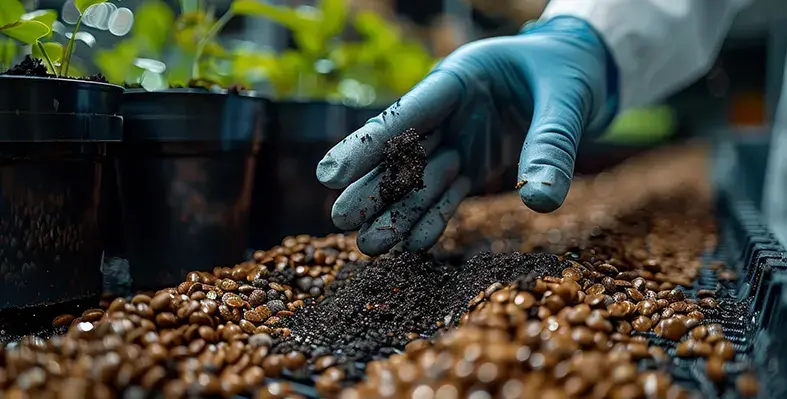The agricultural sector is heading into the 2025–2026 cereal season with renewed momentum, thanks to a significant rise in the production of high-quality seeds.
According to the latest report, approximately 702,000 quintals of higher-quality seeds have been collected marking a considerable increase from the previous year.
This sharp rise is being hailed as a direct result of intensified national efforts to boost local seed production and strengthen food security through agri-tech and innovation. The net output of certified seeds now stands at 515,000 quintals, nearly double last year’s volume of 261,000 quintals, representing a 97.3% increase. The majority of this production is spread across 460,000 hectares of durum wheat, 45,000 hectares of soft wheat, and 10,000 hectares of barley.
At the same time, the estimated demand for certified seeds remains high, with projections standing at 573,000 quintals, alongside an expected 127,000 quintals for barley. With this in mind, national planning efforts have shifted gears to ensure farmers have timely access to the inputs they need especially as drought conditions continue to be a pressing concern.
In response to the challenging climate outlook, the government has implemented proactive measures to support producers. As part of the preparations for the upcoming season, the prices of basic chemical fertilisers have been frozen, following the decision made during the Restricted Ministerial Council on 20 May 2025. This move is designed to shield farmers from market volatility and reduce the cost burden on cereal growers.
The planned sowing area for the 2025–2026 cereal season is estimated at 1.145mn hectares, with 853,000 hectares allocated to the Northwestern regions and 291,000 hectares to the Central and Southern governorates. Irrigated land, however, is set to decrease slightly, with 77,000 hectares projected, down from 80,000 hectares the previous year.
To support this scale of cultivation, the fertiliser programme for the season will supply 289,000 tonnes of basic chemical fertilisers. The Tunisian Chemical Group has pledged to produce 150,000 tonnes of ammonium nitrate at the Gabes facility, with plans to import an additional 70,000 tonnes. By late September, 38,000 tonnes of superphosphate 45, 46,000 tonnes of DAP (Diammonium Phosphate) and 37,000 tonnes of ammonium nitrate had already been distributed to agricultural companies.
“This season’s strong seed output is a testament to coordinated efforts across the agricultural value chain, ensuring farmers are better equipped to face future challenges,” the report concluded.





